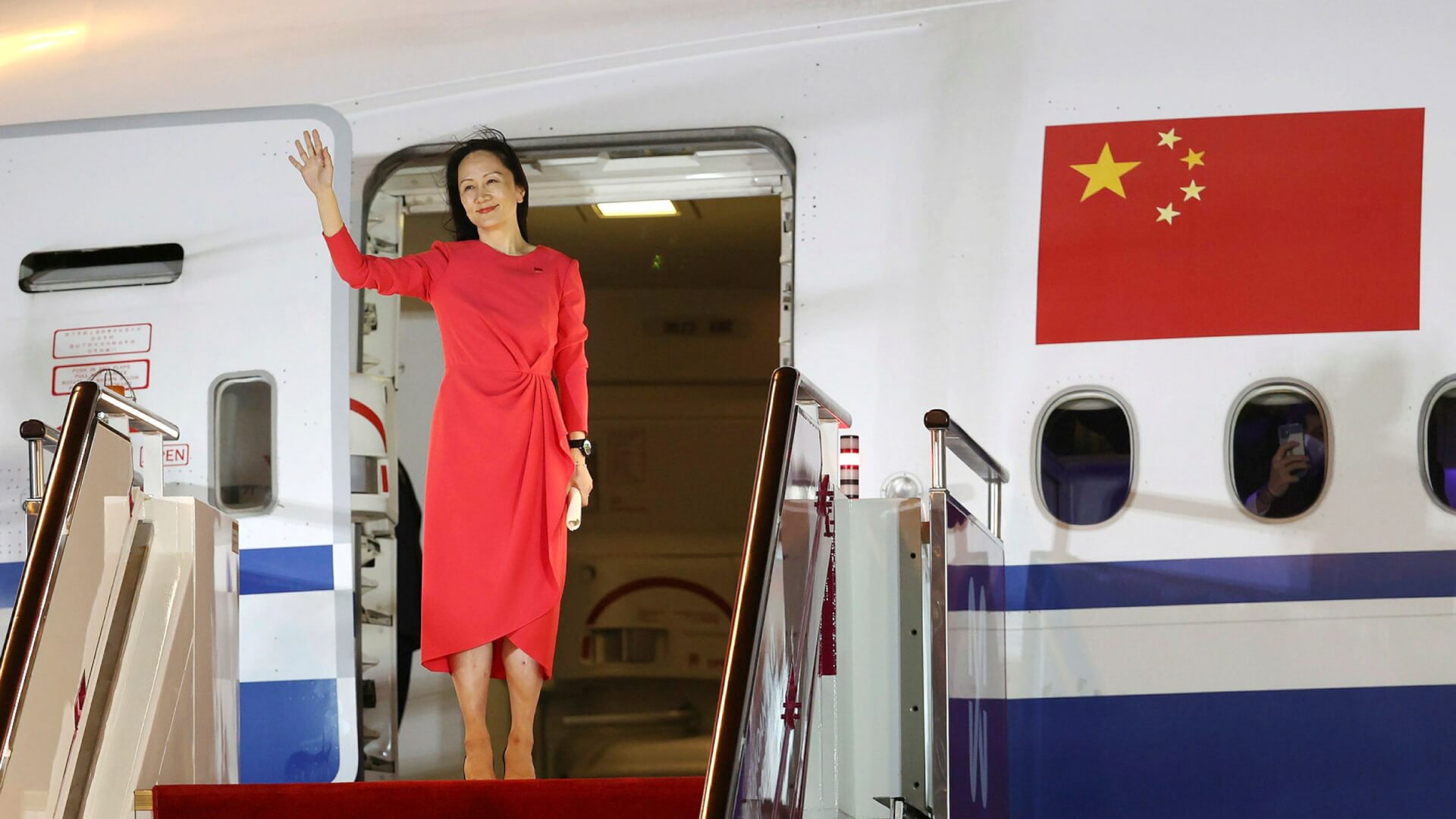Chinese telecom giant Huawei Technologies’ Chief Financial Officer (CFO), Meng Wanzhou, was released by Canada on Friday after almost three years under house arrest in Vancouver. Hours after the news of Meng’s release broke, China announced the release of detained Canadians Michael Spavor and Michael Kovrig.
Meng was arrested in Vancouver in 2018 on a bank fraud warrant issued by the Donald Trump administration and faced trial. American prosecutors claimed that Meng misled bankers at HSBC about Huawei’s relationship with SkyCom, putting the bank at risk of violating the United States’ (US) sanctions against Iran.
Soon after her arrest, Kovrig, a former Canadian diplomat, and Spavor, an entrepreneur, were detained by Chinese officials in December 2018 for endangering state security and indicted in June this year on espionage charges.
In a turn of events on Friday, prosecutors of the Eastern District of New York announced in court that they would drop the bank and wire fraud charges against Meng if she complies with a deferred prosecution agreement, leading to the dropping of extradition proceedings against her in Canada.
However, Huawei’s lawyer previously issued a statement saying that Meng did not plead guilty and that the company will “continue to defend itself against the allegations in the US District Court.” Moreover, according to the agreement of the US Department of Justice, she will not be further prosecuted by the US and that the extradition process in Canada is now void. The lawyer said that in about 14 months, there would be no more allegations against the Huwaei executive.
Meanwhile, Chinese state-owned media house Global Times reported that the two Canadian citizens “confessed their guilt for crimes they committed in China and were released on bail for medical reasons” before departing for Canada on Friday.
Kovrig and Spavor are home in Canada now, while Meng arrived in Shenzhen, in the southern Guangdong Province, on Saturday night.
“After more than 1,000 days of suffering, I finally returned to the motherland. Under the leadership of the Communist Party of China (CPC), my home country is becoming stronger and more prosperous day by day. Without a strong motherland, I won’t have my freedom today,” Meng said on reaching China. She added that three years of detention made her realise that the “destiny of individuals and enterprises is closely linked with a country’s destiny.”
The CPC’s flagship People’s Daily newspaper called the case’s resolution a “glorious victory for the Chinese people” achieved through the “unremitting efforts of the Chinese government.” “The evidence shows this was purely a case of the political persecution of a Chinese citizen to suppress China’s technological advancement,” the paper mentioned. “No force can block China’s forward progress,” it added.
At the same time, Canadian Prime Minister Justin Trudeau welcomed the Kovrig and Spavor home in a tweet: “Welcome home, Michael Kovrig and Michael Spavor. You’ve shown incredible strength, resilience, and perseverance. Know that Canadians across the country will continue to be here for you, just as they have been.”
Although China has previously denied that Kovrig and Spavor’s detention was a retaliatory measure to Meng’s arrest, the prompt release of the two Canadians has led to Western media calling the move “hostage diplomacy” on China’s part. Earlier, Trudeau called Beijing’s retaliatory actions “coercive diplomacy.” On the other hand, the Global Times cited “experts” calling Meng a “political hostage” of the US and Canada.
Despite the resolution of this issue, Canada-China relations are unlikely to thaw soon.

